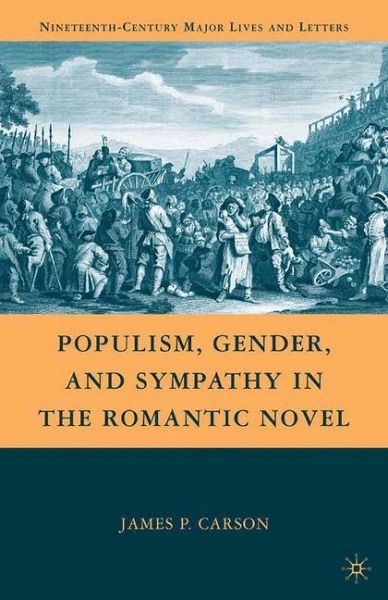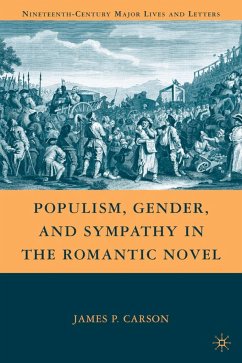
Populism, Gender, and Sympathy in the Romantic Novel
Versandkostenfrei!
Versandfertig in 6-10 Tagen
38,99 €
inkl. MwSt.
Weitere Ausgaben:

PAYBACK Punkte
19 °P sammeln!
Populism, Gender, and Sympathy in the Romantic Novel is a richly historicized account that explores anxieties about crowds, fiction and disguise, women authors, and unstable gender roles. James P. Carson argues that the Romantic novel is a form individualizing in its address, which exploits popular materials and stretches formal boundaries in an attempt to come to terms with the masses. Informed by Bakhtin, Foucault, and Freud, this book offers fresh new readings of works by Sir Walter Scott, William Godwin, Matthew Lewis, Charles Robert Maturin, and Mary Shelley.












